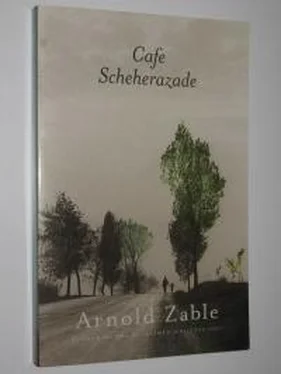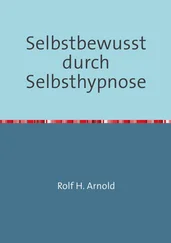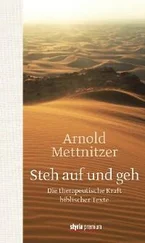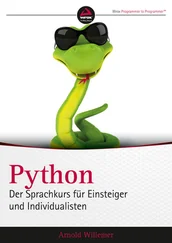Arnold Zable - Cafe Scheherazade
Здесь есть возможность читать онлайн «Arnold Zable - Cafe Scheherazade» весь текст электронной книги совершенно бесплатно (целиком полную версию без сокращений). В некоторых случаях можно слушать аудио, скачать через торрент в формате fb2 и присутствует краткое содержание. Город: Melbourne, Год выпуска: 2001, Издательство: Text Publishing Company, Жанр: Проза, на английском языке. Описание произведения, (предисловие) а так же отзывы посетителей доступны на портале библиотеки ЛибКат.
- Название:Cafe Scheherazade
- Автор:
- Издательство:Text Publishing Company
- Жанр:
- Год:2001
- Город:Melbourne
- ISBN:нет данных
- Рейтинг книги:4 / 5. Голосов: 1
-
Избранное:Добавить в избранное
- Отзывы:
-
Ваша оценка:
- 80
- 1
- 2
- 3
- 4
- 5
Cafe Scheherazade: краткое содержание, описание и аннотация
Предлагаем к чтению аннотацию, описание, краткое содержание или предисловие (зависит от того, что написал сам автор книги «Cafe Scheherazade»). Если вы не нашли необходимую информацию о книге — напишите в комментариях, мы постараемся отыскать её.
Cafe Scheherazade — читать онлайн бесплатно полную книгу (весь текст) целиком
Ниже представлен текст книги, разбитый по страницам. Система сохранения места последней прочитанной страницы, позволяет с удобством читать онлайн бесплатно книгу «Cafe Scheherazade», без необходимости каждый раз заново искать на чём Вы остановились. Поставьте закладку, и сможете в любой момент перейти на страницу, на которой закончили чтение.
Интервал:
Закладка:
"This you will understand once you hear the full story."
All the while our conversation is interrupted by a nod here, an aside there, a hasty conversation on the mobile phone, a snatch of gossip from an acquaintance dropping by, as Avram, and now Masha, turn to greet yet another long-time friend.
Slowly the story trickles out: between sips of borscht and wine, between main course and dessert, between cheese blintzes and cups of tea spiced with lemon. And again the next night, for I have to return night after winter's night to the table in the back room, graced with wallpaper boasting scenes of the Moulin Rouge, cancan girls in full flight, an appropriate background for an epic tale which encompasses a rendezvous in a Parisian nightclub, an apple brandy called Calvados, a nurse tending wounded sailors in the Black Sea port of Odessa, a band of partisans roaming the forests and swamps of Lithuania, perilous escapes over closely guarded borders, an ocean journey halfway across the globe, a young girl awakening in a city of minarets to the resonant echo of a muezzin's call…
Enough! Here at least is the short of it.
"Martin, I am sorry, there can be no short of it," insists Avram.
"That would be impossible," agrees Masha.
"But a journalist cannot spend so much time on one story! I have columns to write! Deadlines to meet! Assignments to complete!" I tell them when, yet again, they take me on a detour, and I will have to return the next night for more episodes in a vast tale that appears to have no end, and not even a beginning, as we move back through the centuries to an anecdote about yet another ancestor, another hazardous journey, another legendary city.
Such as Vilna. Vilnius. The Jerusalem of Lithuania, with its renowned yeshivas and houses of prayer, crumbling castles and fortress walls, elegant boulevards, cobblestone lanes, and its attics and garrets crowded with would-be sages and talmudic scholars, obsessed rebels and pamphleteers, hell-bent on changing a world that seemed to be forever spinning out of control.
It was into this city that, in 1924, Avram Zeleznikow was born, the son of revolutionaries, devout members of the Bund, the labour movement that captured the souls of countless Eastern European Jews.
"I was reared on Bund legends," says Avram in his lilting Yiddish. Each word is carefully wrought. Each sentence has its melody, each paragraph its song. And when he glides into English there is a continuity in syntax for this was the last of Avram's six languages. English is a language still in the forming, still straining for meaning, a language which eventually fails him as he falls back into the mother tongue to weave the tale of his revolutionary past.
He begins his story as a romance, nurtured in clandestine meetings and the prison cells of a dying empire. The heroine of this romance, Avram's mother, Etta Stock, was born in the Ukrainian town of Tulchin in 1881, the year that Tsar Alexander the Second was assassinated, a year of chaos, in which mobs rampaged through the Jewish quarters of Russian cities and towns.
In the tens of thousands the inhabitants fled. In ragged bands, they stole across borders to ports scattered along the European coastline. In desperation they clambered onto ocean liners and freighters, on which they sailed to all corners of the globe to remake their lives.
And those who could not flee turned to thoughts of revolution and Red messiahs who would deliver them from lifetimes of fear.
Others dreamt of the decaying walls of Jerusalem, and sought an end to an ancient exile. Still others clung to their God and houses of worship, their psalms and scriptures, their prayers and preachers, with increased fervour and zeal.
Among the faithful was Etta's father, Avram Stock: a fiddler. A klezmer musician who performed at weddings and bar mitzvahs; a minstrel who played for his supper at the celebrations of the Tulchin aristocracy; a pious Hasid who adhered to the 613 laws of his desert-wandering forebears; a man who punctuated his days according to the dictates of prescribed texts. And a perplexed father who could do nothing but frown upon the errant ways of his daughter, Etta, when she followed the siren call of a new god named revolution to the Black Sea port of Odessa, in the very first year of the new century.
This is a tale of many cities: each one consumed by the momentum of history. Each one recalled at a table in a cafe called Scheherazade, in a seaside suburb that sprawls upon the very ends of the earth, within a city that contains the traces of many cities.
Such as Odessa. The new Odessa is a stroll from Scheherazade.
Masha alerts me to the fact. Compared to Avram, she is more firmly attuned to the present. She exudes an intense curiosity.
It can be seen in the distinct lines that criss-cross her face.
It can be deduced from her quick, deliberate steps. It can be seen in the neatly cut suits she wears. It can be sensed from her bearing, so upright and proud. It can be heard in her English, which is refined, if somewhat accented. And it can be inferred from her observations, her sharp retorts, the remarks she inserts into Avram's monologues.
Yes, the new Odessa is a mere stroll away, Masha tells me. Make your way into Acland Street. Turn left by the Indian take-away into Shakespeare Grove. Walk past the gaping mouth of the moon, patron saint of Luna Park, past the screams of revellers clinging to the evening skies as they career, at break-neck speeds, on the roller-coaster ride. Cross the car-choked Esplanade to the palm trees that line the foreshore, and proceed to the beachfront, accompanied by the soothing aroma of sea breezes.
It is here that they congregate, the Russian emigres of the 1990s, the latest wave of wanderers in search of a haven from a troubled past. They lie on the soft sands of their new world, and remember old Odessa, its dockyards and palaces, its courtyards filled with washing flapping on makeshift lines, its noise-ridden workshops and cafes, and the melody of tenement children at play.
They stroll the St Kilda foreshore and pier, and recall the Odessa waterfront, its run-down eating houses, its rickety warehouses and loading ramps, its wharves and marinas, crowded with ferries that once conveyed them into the Black Sea on weekend cruises. They glance at the bay, and are reminded of the turquoise waters of their receding pasts. And when night descends they stroll to Scheherazade for a bowl of apple compote, a bite of almond torte, and recall bands performing in park rotundas, evenings at state theatres which resembled Turkish castles, and nights at the Odessa Opera where orchestras accompanied the singers of a dying empire.
And, just as nostalgia threatens to overwhelm them, they recall the one-room apartments in which they perspired on summer nights, the slow-moving queues for rationed supplies, and the sub-zero winters during which they stumbled out into damp courtyards smelling of urine and sweat, to relieve themselves in communal latrines choked with the waste of many families.
So their Odessa may not have been very different from the city in which Etta Stock arrived in the year 1900. Tartars strolled in black fezzes alongside Turks in tight-bound turbans. Jews en route to the Holy Land and Muslims on their once in a life-time pilgrimage to Mecca prayed in its synagogues and mosques. Gypsies and troubadours performed in its wine cellars and bars. From its boulevards ships could be seen emerging from the fog, bearing merchandise from distant lands; while at night, drunken sailors, mumbling in disparate tongues, stalked the alleys in search of brothels and gaming dens, and conspirators gathered in concealed meeting places to plot the overthrow of the Tsar.
In Odessa, Etta studied nursing. To pay for her studies she worked in a factory where she was drawn into a cell of the Russian socialist movement. She became obsessed with saving the world. She marched in demonstrations under the cold gaze of gendarmes. She distributed illicit pamphlets and newspapers, and travelled to neighbouring villages on covert missions. She sat on committees that argued over strategy until the dawn light sponged the skies. And she worked in an underground printing press in the city of Kishinev alongside the young Joseph Stalin.
Читать дальшеИнтервал:
Закладка:
Похожие книги на «Cafe Scheherazade»
Представляем Вашему вниманию похожие книги на «Cafe Scheherazade» списком для выбора. Мы отобрали схожую по названию и смыслу литературу в надежде предоставить читателям больше вариантов отыскать новые, интересные, ещё непрочитанные произведения.
Обсуждение, отзывы о книге «Cafe Scheherazade» и просто собственные мнения читателей. Оставьте ваши комментарии, напишите, что Вы думаете о произведении, его смысле или главных героях. Укажите что конкретно понравилось, а что нет, и почему Вы так считаете.












